The question of Twitter vs Facebook can be complex. Which is better for your site or business to be on? And do you even have to make a decision?
The two social networks each offer lots of opportunities to connect with your audience and drive traffic to your site. However, they are also very different in the way they operate.
For that reason, it can make sense to settle on one or the other. Same if you have limited resources and can only take care of one account, even with a social scheduling tool. Or maybe you’re just here because you are confused as to what is the difference.
If you are not sure where you should stand on the Twitter vs Facebook debate, this post is for you. Below, we will examine the two social networks in terms of general purpose, user demographics, engagement, roles in marketing, content that performs well and ads.
In the end, we want you to feel capable of confidently making a decision about which one to use for your business.
Twitter vs Facebook – The Big Comparison
Alright, time to dive deeply into what these two social giants have to offer for businesses and website owners.
1. General Purpose
Facebook and Twitter are already very different in the main functionality they provide users.
Facebook’s mission is to connect people with their loved ones and give them the possibility to share photos, videos, and updates on their lives.
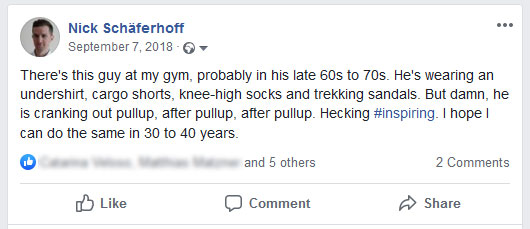
At least on paper. As we have seen in recent years, they seem a bit more focused on collecting data and using it to make money. But I digress.
Twitter, on the other hand, is all about what is happening in real time.
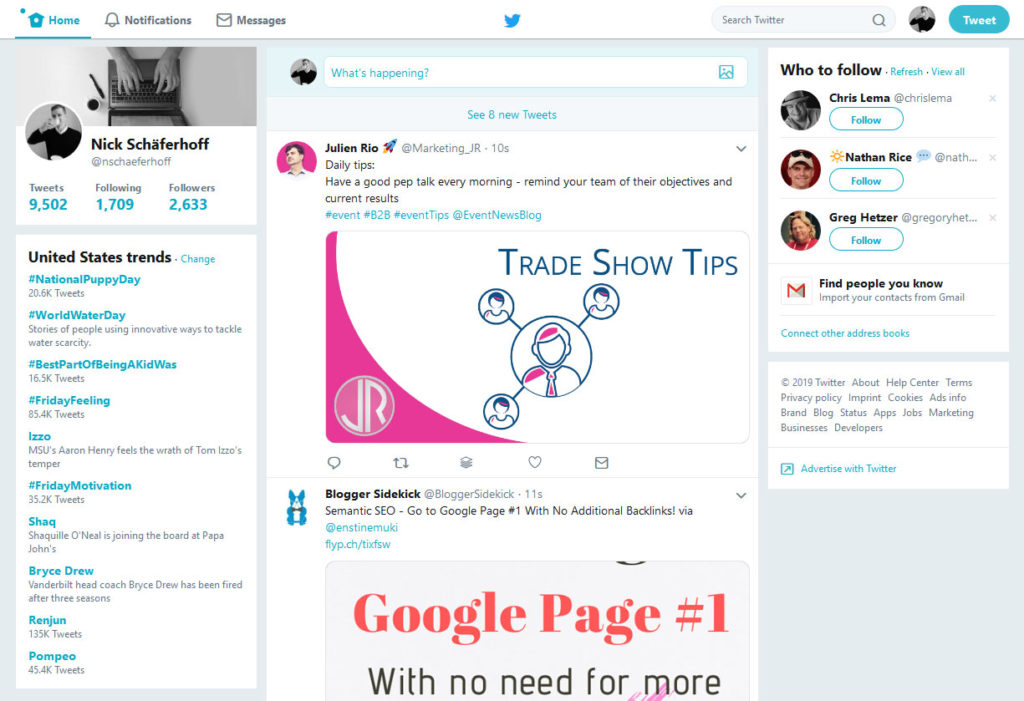
It allows you to discover content, learn about trending news, real-life updates on what is going on in the world and the lives of the people you follow. For example, the platform was the first to break news on the Bin Laden raid.
While it is also about connecting with others, Twitter’s focus is less on reciprocation and more about getting your ideas out into the world. It’s not so much the place to build personal relationships but you can still get in touch with others.
2. User Demographics
Knowing what types of users are on each platform is an important factor in the decision of Twitter vs Facebook. After doing market research, you probably have a good idea who you are trying to attract. Picking the platform that most fits this profile is a good step in that direction.
First of all, in terms of demographics, Facebook is definitely the bigger fish in the pond.
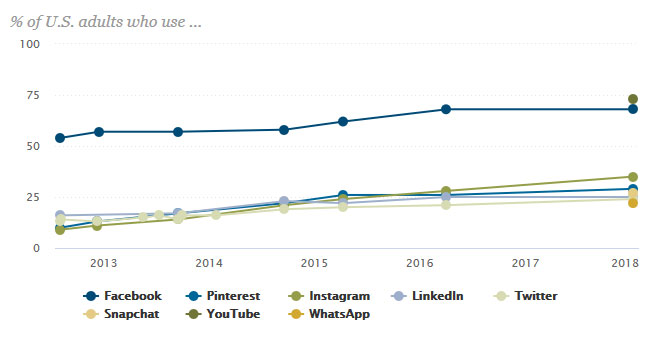
It is the biggest social network in the world, with more than 2.3 billion monthly active users. That’s 30 percent of the world’s population!
In the US alone, nearly 70 percent of adults use the platform.
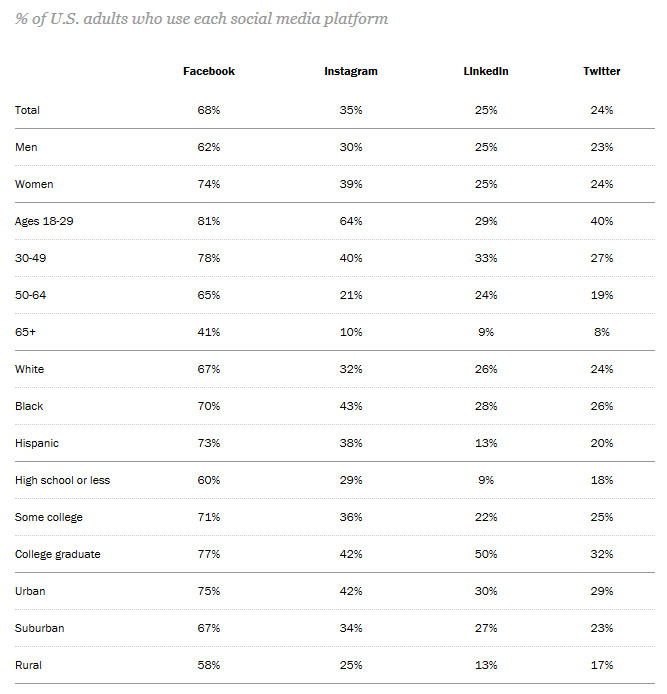
On the other hand, Facebook’s demographic is getting relatively old. In fact, seniors are one of the fastest growing user groups online and 90 percent of those over 65 go for their own Facebook account. Therefore, it’s no surprise that 65 percent of the age cohort 50-64 can be found on the platform.
At the same time, Facebook is not as interesting to the younger generation anymore. The network is actually losing ground among certain age groups.
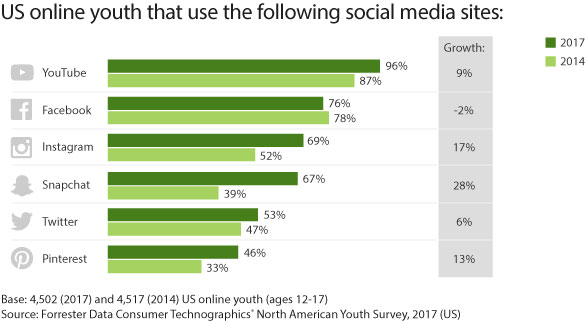
In contrast to Facebook’s behemoth status, Twitter is relatively small. Only about a quarter of American adults are active here. However, the network attracts a much younger crowd.
As you can see from the table above, only 19 percent of the older age cohort frequent the microblogging platform. The largest share is people who are 18-29 years old.
In addition to that, you also have to look at who is on Twitter. The platform is a favorite among journalists, politicians, and celebrities. In 2015, 83 percent of world leaders had their own Twitter account and many of them have millions of followers. At least one is also well known for his voracious use of the platform.
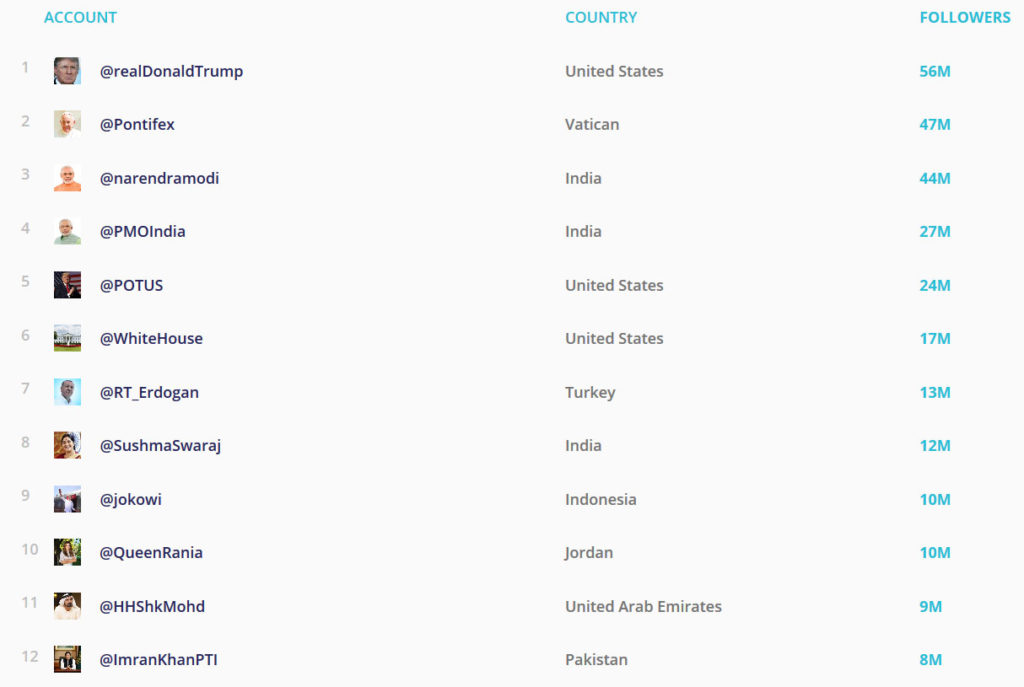
Twitter also gives a way to interact directly with famous people and many do, even if it’s not always in the nicest way.
However, that is part of the appeal of Twitter. There is less of a barrier to get in touch with someone you don’t know and everyone is equal. As a consequence, users are also likely to talk to brands or websites.
3. Engagement Rates
However, just because more people use a platform, that doesn’t necessarily mean that there is more activity there. A smaller engaged audience is often more valuable than a passive larger one. Just ask people who buy followers. So, how do our contenders fare in this area?
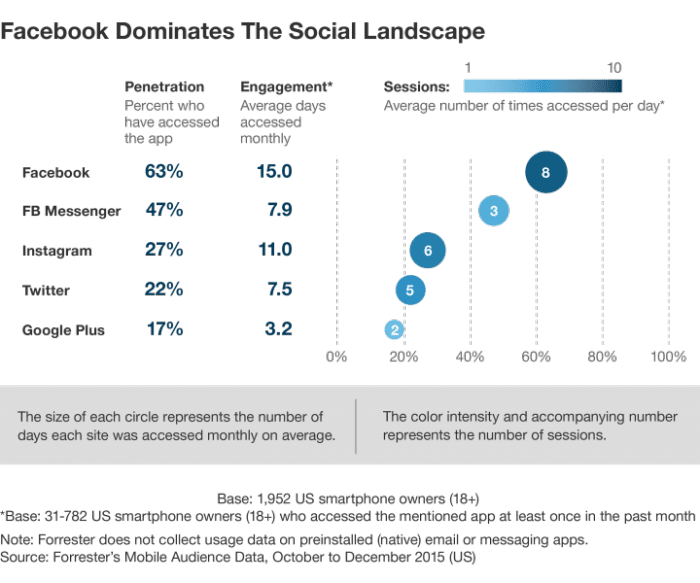
Here, too, Facebook wins in terms of sheer volume. Users check their account on the platform on average eight times per day. For Twitter, that number is only five.
In addition, the median engagement rate across many industries is 0.16 percent for Facebook an 0.046 for Twitter. As a consequence, for every one million Facebook followers, brands can expect to receive about 700 likes, comments, and shares. In contrast to that, every one million Twitter followers nets them only about 300 interactions.
However, that is not to say that Twitter has low engagement. 46 percent of its users check the platform daily. Among millennials, the number is even higher with 81 percent.
One possible reason for the lower engagement rates is that the network is especially popular for news and updates. Therefore, the focus might be more on consumption and not as much on sharing, liking and commenting.
4. Roles in Marketing
There are other differences in usage patterns that have consequences for how businesses use Twitter and Facebook for marketing.
Twitter offers a way to publish quick tips, short blurbs and do real-time interaction. On the other hand, any message you shoot out is buried quickly under a barrage of other, similar messages. Therefore, you need to be more active to stay visible. The fast-paced nature might make it difficult to gain traction on a single post for long.
One way to combat that is to post the same content several times, which is a legitimate strategy.
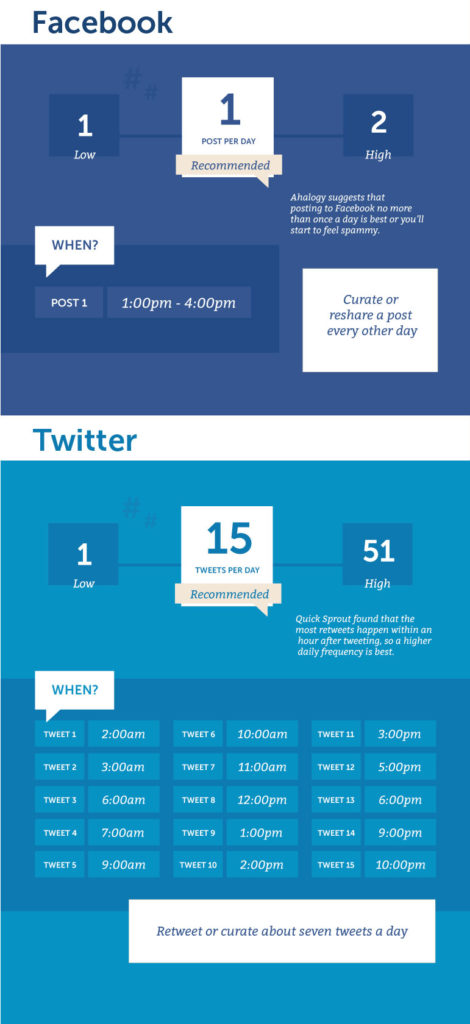
On the other hand, on Twitter, you don’t have to deal with a complicated algorithm that determines who sees your posts. They simply appear in chronological order in your followers’ feeds. It’s a very democratic way of spreading information.
Facebook, on the other hand, allows more long-term engagement with a single post. Users are able to start a discussion directly under the content you publish. This makes it easier to build relationships with members of your audience and communicate more deeply. You also have to publish less.
In addition, you are able to create a business page and provide more information and options, including a ‘shop-now’ button.
At the same time, it has gotten increasingly difficult for business pages to get organic exposure. The reach has declined for years.
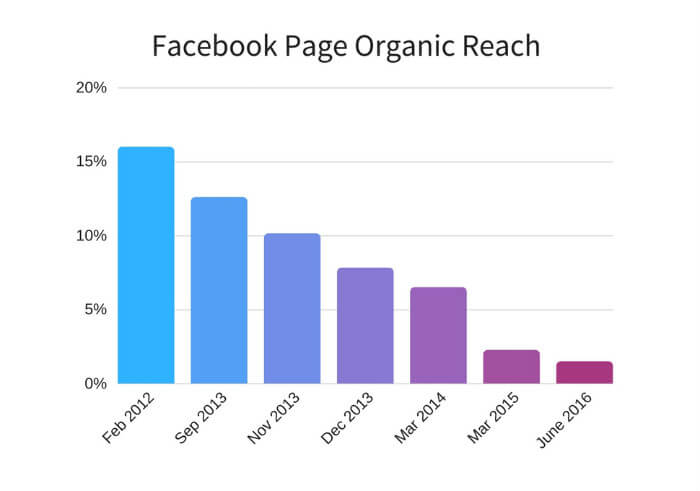
As a consequence, many have had to resort to buying ads (more on that below).
5. High-Performing Content
Each platform also has different content that performs best.
When thinking of Twitter vs Facebook in terms of content, it’s important to first note that all social platforms have gotten increasingly visual. While in the past, it might have been enough to just post your status, these go largely ignored these days.
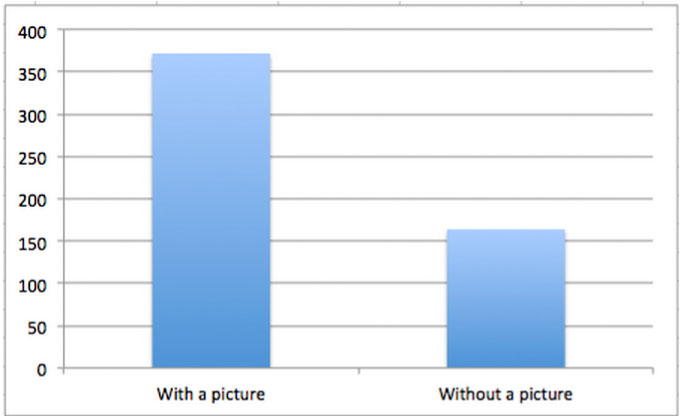
This also obvious in recent business moves of both platforms. Twitter bought Periscope to allow users to live stream their lives. Shortly after, Facebook countered with Facebook Live. The latter is by now one of the most popular streaming platforms in the world.
As a consequence, it should be no surprise that video is one type of content that performs best on Facebook.
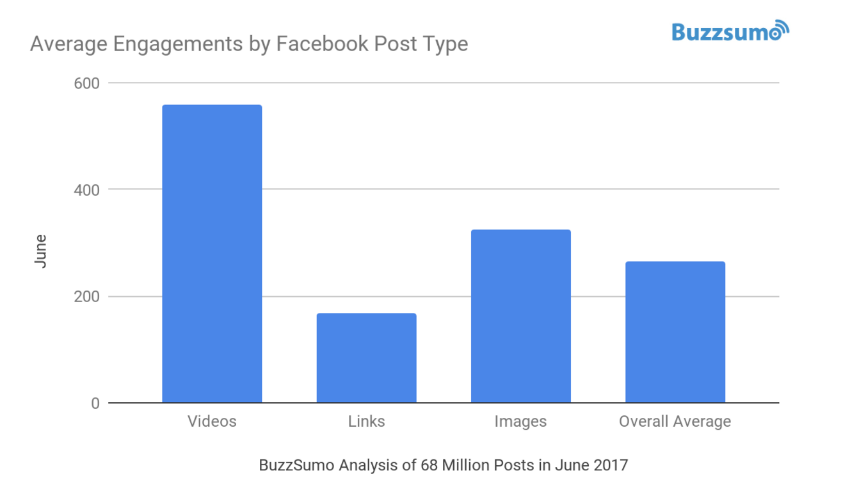
Aside from that, curated content is another favorite on the social giant. So, it pays to post useful articles and resources for your followers.
For Twitter, on the other hand, we have already pointed out that many use it as a news outlet. As a consequence, sharing current information relevant to your site, product, industry or similar is a good idea to entertain your audience.
Aside from that, curated content works well here, too. However, avoid posting it in text-only form but use the link preview, images, videos, or GIFs. Also, it’s a good idea to make sure that what you post is optimized for mobile since many people use Twitter via their phones and tablets.
6. Ads and Adspent
When discussing Twitter vs Facebook, we also have to talk about ads. They are one of the main advertising channels for many businesses and both social networks offer them.
Here, Facebook offers impressive targeting tools.
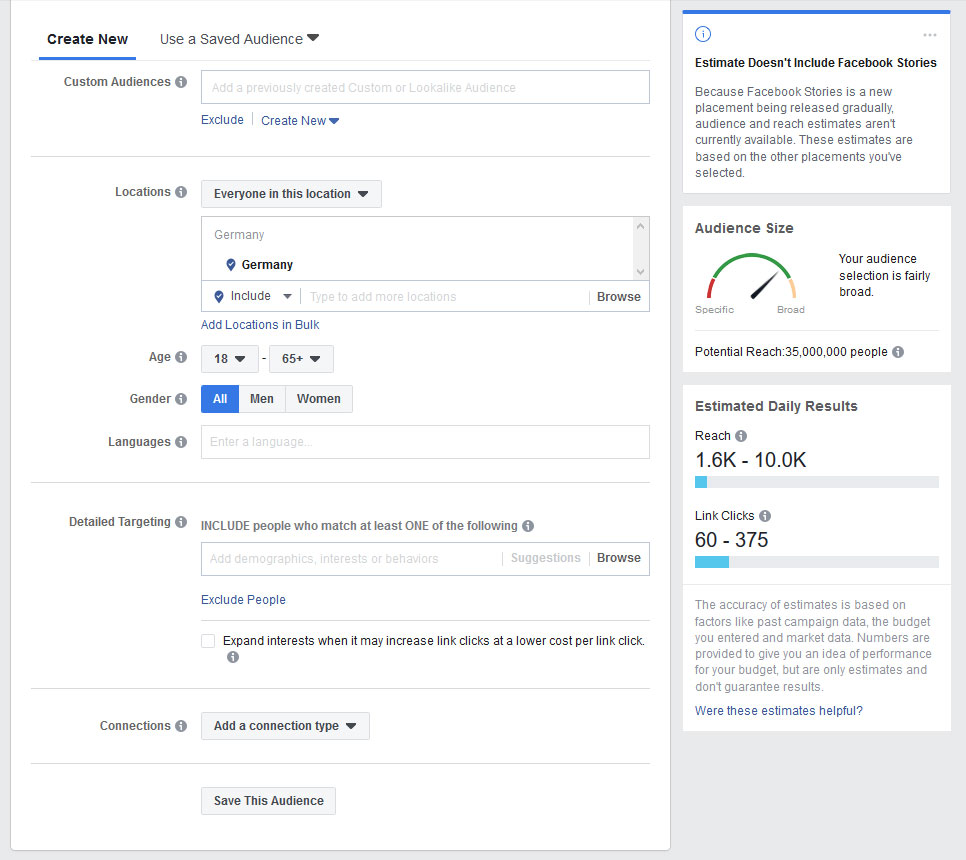
The platform allows you to show your ads to people based on age, hobbies, income, interests, Facebook groups they frequent, and much more. That way, you are able to narrow your targeting down to the most likely people to care about what you have to offer. This makes it more likely they will click and convert.
Plus, Facebook ads are pretty cheap. You can run a campaign on as much as it costs to get a drink at your local coffee store chain. However, prices have also been increasing.

Pricing is also where Facebook has Twitter beat. While the platform offers similar ways of targeting users, advertising on there is usually more expensive. The cost per impression is about $3.50 (vs $0.59 on Facebook).
On the other hand, this might be offset, at least in part, by the fact that ad engagement rates on Twitter are usually higher. On the microblogging platform, the number is about 1-3 percent vs Facebook’s average of 0.119 percent.
Especially in the mobile ad arena, Twitter outperforms Facebook. Their ad format, showing paid updates as part of the normal newsfeed, is just more mobile friendly than Facebook’s alternative.
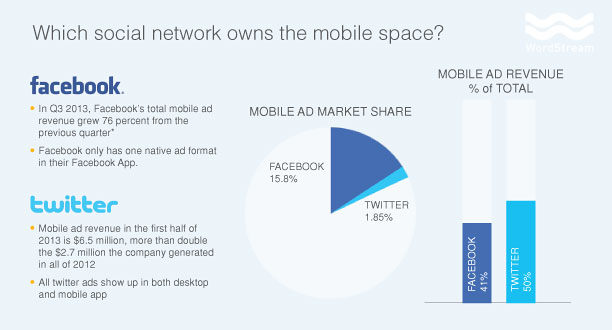
Twitter vs Facebook – The Verdict
Comparing Twitter and Facebook’s potential value for your site or business is a good idea before becoming active on either one. They are very different platforms that offer different advantages, disadvantages and approaches for marketing yourself.
Which one you go for really depends on your site, goals, and capacities. In the end, you need to ask yourself which one aligns best with your site or business.
Can you thrive in Twitter’s fast-paced environment? Do you have quick, digestible tips or curated news articles to share and the resources to post more often? Then this network might be a good platform for you.
On the other hand, if you are looking for long-term engagement, Facebook might be the superior alternative. It also gives you access to a much larger audience with higher engagement rates.
When asking yourself which is better, it also makes sense to research where to find most of your competitors. If most professionals in your niche are on Twitter, it’s critical you also appear on the tool. Vice versa with Facebook.
If you still feel unable to decide, give both of them a try for a while. While I am a big proponent of mastering one social network before moving on to another, they are both free, so you can get your feet wet before doubling down. See where your content performs better and what is working for you. Sometimes taking action is better than overthinking.
Where do you stand on the Twitter vs Facebook debate? Any additional insights to share? Please do in the comments section below!
The post Twitter vs Facebook – Which is Better for Your Website or Business? appeared first on Torque.
